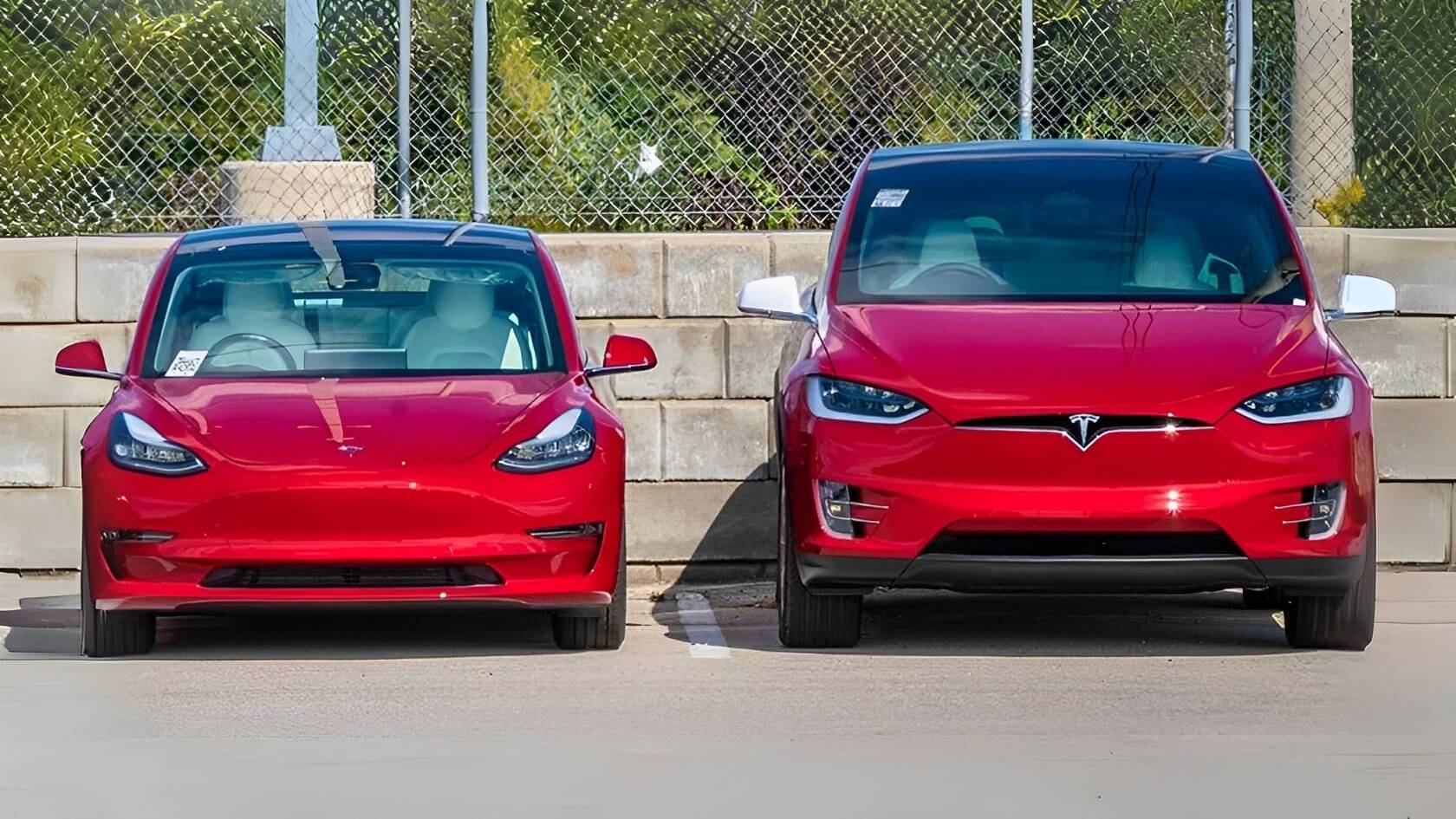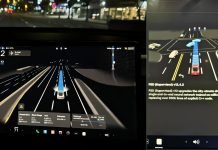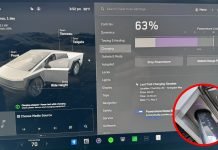A Vermont man has been sentenced to four years in prison for exploiting a loophole in Tesla’s payment system. Michael Gonzalez managed to trick the automaker into delivering him five high-end Tesla vehicles, cumulatively worth $560,000, without making any payments. This audacious scam not only exposes vulnerabilities in Tesla’s online payment portal but also raises critical questions about the security measures in place within the broader EV industry.
Michael Gonzalez, a 34-year-old resident of Shelburne, Vermont, discovered a flaw in Tesla’s online payment system that allowed him to take possession of five Tesla cars without paying for them. He later sold three of these vehicles, pocketing hundreds of thousands of dollars. Federal prosecutors have now sentenced him to four years in prison, marking a significant legal milestone in cases involving online fraud and the automotive industry.

Table of Contents
Tesla Loophole Exploited
The loophole that Michael Gonzalez exploited lay in Tesla’s online payment system. Specifically, Tesla’s portal allowed for the delivery of vehicles and their certificates of ownership before the completion of the payment transaction. Gonzalez took advantage of this by entering bank details linked to accounts that had little or no money. Tesla, trusting the entered bank information, proceeded with the deliveries, only to find out days later that the accounts had insufficient funds.
Breakdown of the Scam
Gonzalez’s scam was simple yet effective, and it followed a pattern that he repeated multiple times. Here’s how it worked:
- Order Placement: Gonzalez would place an order for a Tesla vehicle online, making a small deposit to initiate the process.
- Bank Information: When the car was ready for delivery, he would provide Tesla with bank account details that were linked to accounts with insufficient funds.
- Delivery and Ownership: Tesla, not waiting for the payment transaction to complete, would deliver the vehicle along with the certificate of ownership to Gonzalez.
- Resale: Gonzalez would then sell these vehicles, often at prices significantly lower than their market value, to unwitting buyers.
Timeline of Events
- September 2018: Gonzalez made his initial move by placing an order for a Tesla Model 3, priced at $58,000. He made a deposit of $2,500 to initiate the order.
- October 2018: The Model 3 was ready for delivery. Gonzalez provided Tesla with bank information linked to an account with insufficient funds. Tesla, trusting the bank details, delivered the vehicle and its certificate of ownership, allowing Gonzalez to register the car with the Vermont Department of Motor Vehicles (DMV).
- December 2018: Gonzalez sold the Model 3 to a used-car dealer for $42,000, significantly lower than its original price but still a substantial gain given he had not paid for the car.
- Following Year: Gonzalez repeated this scheme four more times, each time targeting the more expensive Tesla Model X, priced around $150,000. He even used the names of girlfriends or ex-girlfriends as the buyers in two of these instances to divert attention.
How Gonzalez’s Scheme Began to Unravel
Michael Gonzalez’s audacious scam began to fall apart when he encountered difficulties in getting an ownership certificate for one of the Tesla Model X. Without the ownership certificate, he couldn’t legally resell the car, which led him to make a desperate and dangerous decision that would ultimately lead to his downfall.
So, Gonzalez drove the $153,000 Tesla Model X onto a frozen section of Lake Champlain and set the vehicle on fire. This reckless act was not just a public safety hazard but also an attempt to claim insurance money for the destroyed vehicle. However, this move raised red flags with the insurance company, which then requested Gonzalez to appear for an in-person “examination under oath” and produce the vehicle’s title.
Gonzalez failed to appear for the insurance interview, further arousing suspicions. This failure to comply with the insurance company’s request was the last straw that led authorities to pick up the case. Soon after, he was arrested on a separate federal charge for allegedly lying on an application for a federal firearms license. While in detention, he was recorded telling his girlfriend over the phone about his intent to sell the hidden car upon his release, further incriminating himself.
His arrest led to a series of legal proceedings, culminating in a guilty plea to five counts of possessing and disposing of stolen vehicles. The insurance claim, his failure to appear for the interview, and the recorded phone conversation while in detention were key pieces of evidence that sealed his fate.
Legal Consequences
After his arrest and the subsequent legal proceedings, Michael Gonzalez opted to plead guilty to the charges leveled against him. He was charged with five counts of possessing and disposing of stolen vehicles. The guilty plea came just days before a trial was set to begin, indicating a strategic move on his part to potentially lessen the severity of his sentence.
Terms of the Plea Deal
As part of his plea agreement, Gonzalez agreed to some stringent terms that aimed to make reparations for his actions:
- Restitution to Tesla: Gonzalez committed to paying Tesla $493,000 in restitution. This amount likely covers the cost of the vehicles, legal fees, and other related expenses that Tesla incurred due to the scam.
- Forfeiture of Profits: In addition to the restitution, Gonzalez also agreed to forfeit the $231,900 he made from selling three of the five Tesla vehicles. This money will go to the government, as outlined in the plea deal.
- Prison Sentence: Gonzalez was sentenced to four years in prison, a term that reflects the gravity of his fraudulent activities and their impact on Tesla and the unsuspecting buyers of the stolen vehicles.
- Full Responsibility: According to his attorney, Gonzalez took “full responsibility for his actions” as part of the plea deal. This was seen as a commitment to restitution and a sign of respect for the justice system.
The legal consequences faced by Gonzalez serve as a stern warning to would-be fraudsters about the severe repercussions that come with exploiting system vulnerabilities for personal gain.
Implications for Tesla and the EV Industry
The case of Michael Gonzalez exposes some glaring vulnerabilities in Tesla’s online payment system. The fact that Tesla’s portal allowed for the delivery of vehicles and their certificates of ownership before confirming the completion of payment transactions is a significant oversight. This loophole not only cost Tesla financially but also could potentially damage its reputation for security and reliability.
The implications of this case extend beyond Tesla to the broader EV industry, especially as more companies are moving towards online sales and digital transactions. The incident serves as a cautionary tale for other players in the industry to reevaluate their online payment and delivery systems. As the EV market continues to grow, the security of online platforms becomes increasingly critical. Companies must invest in robust cybersecurity measures to safeguard against such fraudulent activities and maintain consumer trust.
Final Thoughts
The case of Michael Gonzalez and his scam targeting Tesla is significant for several reasons. It highlights the vulnerabilities that can exist in online payment systems, even for high-profile companies like Tesla. The case also serves as a wake-up call for the automotive industry, emphasizing the need for stringent security measures in online sales and payment platforms.
The key lesson from this case is the urgent need for enhanced security protocols in online payment systems. Companies, especially those in the rapidly evolving EV industry, must prioritize cybersecurity to prevent similar incidents. The case serves as a stark reminder that technological advancements, while offering convenience and efficiency, can also open the door to new types of fraud if not adequately secured.


















